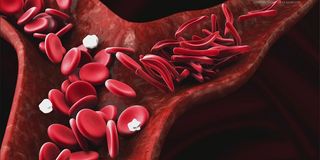Efforts to combat sickle cell gathers pace as awareness campaigns expand

What you need to know:
- Recent observations highlight a troubling trend: some parents, unaware of the severity of sickle cell disease, are turning to traditional healers rather than seeking medical care for their children. This practice has contributed to preventable deaths among children under five.
Arusha. In response to the widespread lack of awareness about sickle cell disease, local authorities and health advocates are intensifying efforts to educate the public and improve treatment access.
The initiative aims to address misconceptions and encourage timely medical intervention for affected children.
Recent observations highlight a troubling trend: some parents, unaware of the severity of sickle cell disease, are turning to traditional healers rather than seeking medical care for their children. This practice has contributed to preventable deaths among children under five.
A prominent activist and advocate for sickle cell disease awareness, Sanyu Senga, spoke at a community outreach event in Arusha. “There is a significant challenge due to the lack of awareness, which leads some parents to seek help from traditional healers instead of medical professionals,” Senga said.
“It is crucial for us to educate the community so that children with this condition receive proper medical care.”
Senga, who is 47 and has a child herself, emphasized that her own understanding of the disease has been instrumental in her advocacy.
“Education has been key in managing my child’s condition, and we need to ensure that others have the same opportunity,” she added.
September has been designated as a month for raising awareness about sickle cell disease. The campaign targets various community groups, emphasizing the importance of genetic testing for those planning to start families.
“Just as we screen for HIV, we need to include sickle cell testing to prevent the disease from passing to future generations,” Senga explained.
The founder of the Sickle Cell Disease Patients Community of Tanzania, Arafa Said echoed these sentiments.
“Our goal is to enhance community understanding and ensure better treatment options are available. This month, stakeholders will climb Mount Kilimanjaro to raise awareness and support for the cause,” Said announced.
Executive Director of Sickle Forward in the United States, Dr Allan Anderson, will join over 20 activists on the Kilimanjaro climb to fundraise for sickle cell disease treatment in Sub-Saharan Africa.
“We aim to improve early detection and treatment for newborns in this region. This initiative is part of our broader effort to collaborate with local and international partners,” Dr Anderson said.
Dr Anderson highlighted that over $1.2 million has already been raised to support sickle cell disease programs in Sub-Saharan Africa, including West African countries such as Mali, Togo, and Gabon.
The Coordinator of Non-Communicable Diseases in Arusha Dr Edna Ntulwe, reported that more than 10,000 children are diagnosed with sickle cell disease annually in Tanzania.
“Ongoing education is critical to breaking the cycle of this hereditary disease and reducing mortality rates among young children,” Dr. Ntulwe said.
The Executive Director of the Tanzania Sickle Cell Disease Alliance, Dr Deogratias Matanda, emphasized the urgency of early diagnosis and treatment.
“Without early intervention, 70 to 90 percent of affected children may not survive past their fifth birthday. Addressing this issue remains a top priority for us,” Dr Matanda concluded.




